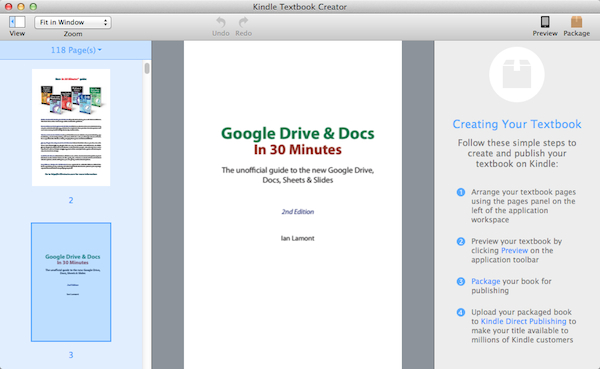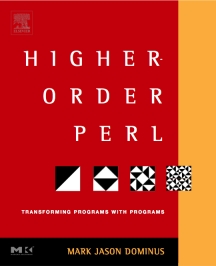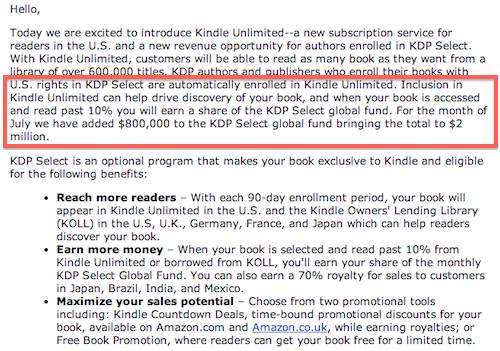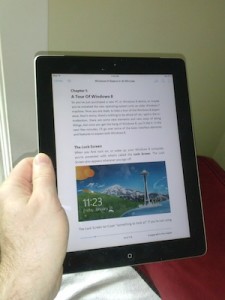I have been dreaming of the day when someone releases a tool that makes it easy to create ebooks that contain video, snazzy layouts, and other interactive features that make for a rich reading and learning experience on a tablet. In my iBooks Author review, I was impressed with the creative possibilities and the ability to include video and high-quality photo layouts. However, I was disappointed with the lack of support for other platforms — there was no way to export a version of the book for the Kindle, the Nook, or Android tablets. So when the book industry press started making Kindle Textbook Creator vs. iBooks Author comparisons, I was very interested in seeing if Amazon’s new tool could fit my needs. I was disappointed in the results, as you will see from my review of Kindle Textbook Creator below.
The first sign of trouble was the landing page for Kindle Textbook Creator. There weren’t any exciting screenshots. Instead, the focus of the beta tool seems to be around converting PDFs to ebooks:
Kindle Textbook Creator is a free tool for authors and educators that makes it fast and easy to convert PDFs of textbooks, course notes, study guides and other educational material into Kindle books. In a few simple steps, you can import your PDF content into Kindle Textbook Creator and then use the built in previewer to see how your book appears on a range of Kindle devices and free Kindle reading apps.
I downloaded the tool and gave it a spin, using the latest editions of Google Drive & Docs In 30 Minutes and Excel Basics In 30 Minutes. These two titles have new, high-quality interior design, and the tool’s preview function showed that the layout was preserved in the ebook. The output file is .kpf, which (unlike .epub and .mobi files) I could not preview on any of the devices I own. It also doesn’t work on the Kindle Previewer app, either. To really test the results, I would have to upload the package to Kindle Direct Publishing, a step I am unwilling to take considering I already have ebook versions of Google Drive & Docs In 30 Minutes and Excel Basics In 30 Minutes in KDP.

There were other missing features in Kindle Textbook Creator. There’s no way to edit text, replace photos or other images, or edit links. The rich media features of iBooks Author — the ability to insert videos, HTML widgets, photo slideshows, etc. — were completely missing. A Kindle Textbook Creator vs. iBooks Author Creator comparison is simply no contest. It’s not even like comparing apples and oranges, it’s more like melons and plantains (or something like that).
So, at the end of the day, it appears that the beta version of Kindle Textbook Creator is little more than a PDF to ebook conversion tool. Amazon hints in a product FAQ that more is in the works, however:
We decided to launch a Beta of the Kindle Textbook Creator so that we can get more feedback from authors and educators to make improvements before our full launch. Our full launch will include a number of additional features, including support for audio, video, and other interactive features.
But, as is always the case when big companies make vague promises, it’s not clear how well Amazon will deliver on these promises, or when it will happen.
If you’re an author or publisher, what features do you want to see in Amazon’s new book creator tools? Leave comments below.



 When I first began testing different ebook formats in 2012 for the first In 30 Minutes
When I first began testing different ebook formats in 2012 for the first In 30 Minutes